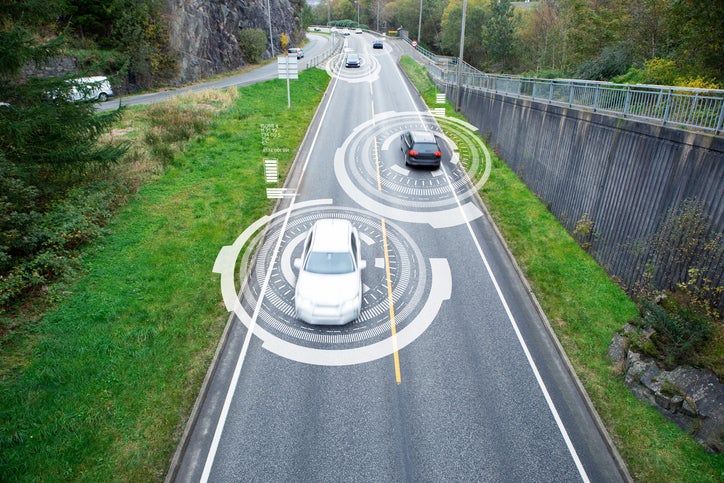
Autonomous vehicles (AVs) are undoubtedly the biggest change facing the global automotive industry, but although the hype surrounding the technology is at its height, when it comes to their implementation, some countries are more prepared than others.
To determine which countries are the most ready for AVs, professional service company KPMG has published its second Autonomous Vehicles Readiness Index, assessing which countries are best prepared in terms of policy and legislation, technology and innovation, infrastructure and consumer acceptance.
Although KPMG’s last ranking was only a year ago, driverless vehicle technology, as well general interest and investment, has advanced significantly.
According to the company, in the last year countries including the Netherlands, the United Kingdom, Australia and France, as well as the US State of California, have passed or are passing legislation related to AVs on public roads, and trials are already underway in Singapore, Madrid and Gothenburg.
However, some countries in particular are excelling in their AV preparations. Countries that have scored highly have done so due to having “a policy framework that enables innovation, a strong track record in technology, high-quality road and digital infrastructure, and populations that are eager to adopt new technologies”.
They have also demonstrated an eagerness to invest in AV-related companies, research and development, as well as creating a business environment that encourages innovation.
How well do you really know your competitors?
Access the most comprehensive Company Profiles on the market, powered by GlobalData. Save hours of research. Gain competitive edge.

Thank you!
Your download email will arrive shortly
Not ready to buy yet? Download a free sample
We are confident about the unique quality of our Company Profiles. However, we want you to make the most beneficial decision for your business, so we offer a free sample that you can download by submitting the below form
By GlobalDataKPMG surveyed 25 countries on 25 different variables to determine which was the most proactive in the introduction of autonomous vehicles. Here are the top five:
The Netherlands
Leading the way is The Neatherlands. Ranking highly in public acceptance and policy and legislation, the country has taken definitive steps to embrace the technology.
According to the report, the Dutch government soon plans to have driverless freight delivery trucks operating on highways between the Netherlands and other countries in Europe, possibly using 5G technology. There are also plans to adopt the technology in the “Tulip Corridor”, the route used by the country to export flowers.
The Netherlands also has a robust legal framework for autonomous driving, with the Dutch government taking an active role in AV safety, as well as a pre-existing network of electric vehicle charging stations.
Singapore
Home of a world-leading university, and the best town for driverless vehicles featuring bus stops, traffic lights, skyscrapers and hills, Singapore is preparing itself for the arrival of driverless cars.
It lead the way in policy and legislation and consumer acceptance, and ranks second for infrastructure.
The report also recognises the proactive efforts being made to test diverless vehicles in Singapore, which has announced that three areas, Punggol, Tengah and the Jurong Innovation District, will use driverless buses for off-peak and on-demand transportation starting in 2022.
UK home appliances manufacturer Dyson recently announced a controversial move to Singapore, opening a new factory focusing electric cars, signifiying an interest in cutting-edge transportation in the city state.
Singapore also taxes private car use heavily, meaning that the ride-sharing option offered by autonomous vehicles may drive consumer interest.
Norway
Following the legalisation of AV testing in January, several cities in Norway now operate driverless minbus services.
Like The Netherlands, Norway has been testing the roll out of automated trucks in the north of the country, as well at plans for autonomous taxi pilots this year.
Therefore, Norway scores highly for technology and innovation, ranking second for this category out of all countries surveyed.
The US
Much of the world’s AV companies and AV testing is located in the US, so it is not surprising that the country scores highly.
An area that it falls behind on, however, is legislation, slipping down the rankings to ninth due to a lack of forward-thinking legislation supporting eco-friendly transportation.
Several high-profile pilot projects, such as Uber’s trial of self-driving cars in Arizona, have caught public attention, but sometimes for the wrong reasons after a woman was hit by a self-driving car and killed last year, affecting public acceptance.
Sweden
Sweden’s reputation for cutting-edge technology means that it has ranked highly, with its road and mobile network putting it ahead of many other European countries.
In April last year, Sweden opened the world’s first electric-charging road, a 2km stretch of road near Arlanda airport, meaning it has already invested in the infrastructure needed for AVs and EVs.
Sweden’s transport agency has already given small-scale AV pilots the go-ahead, including a driverless bus service in northern Stockholm, and test driving by Volvo in the Gothenburg area.
The country is also expected to introduce legislative changes in July to allow allow AVs on public roads and tests without human drivers.
To view the whole ranking, read KPMG’s report here







